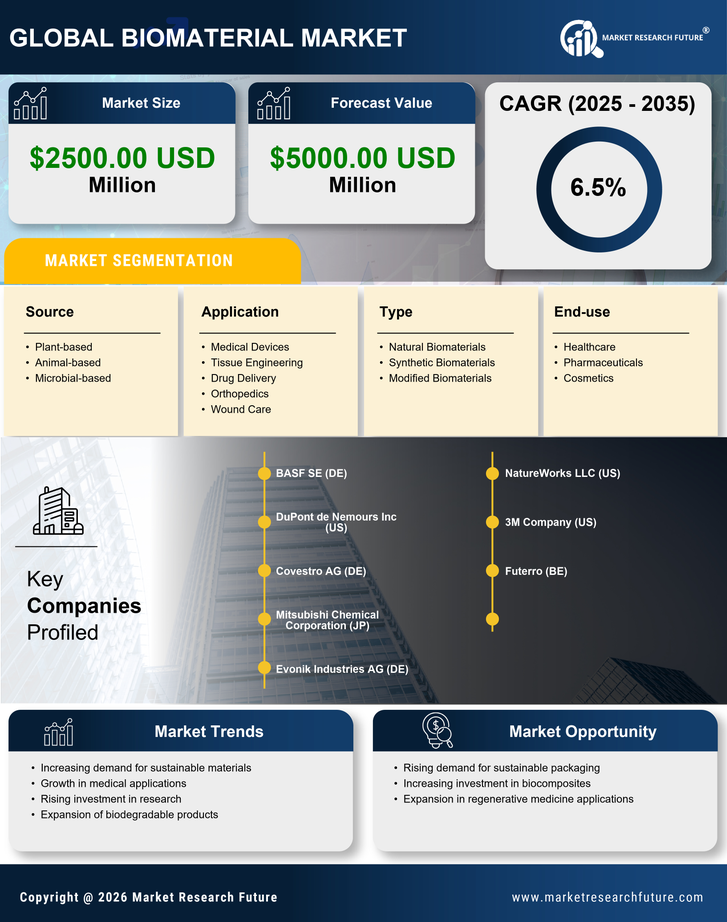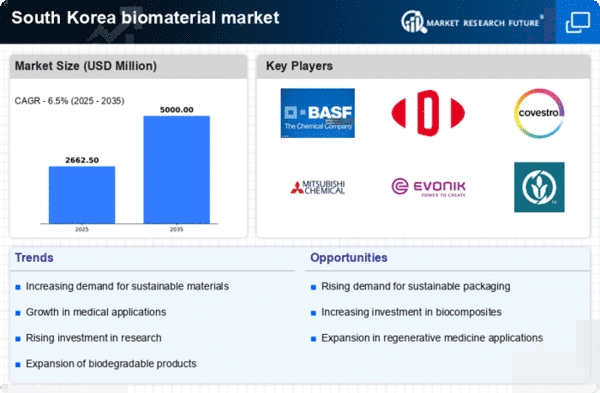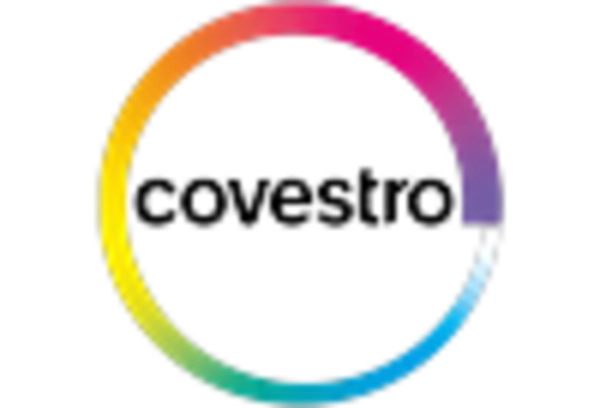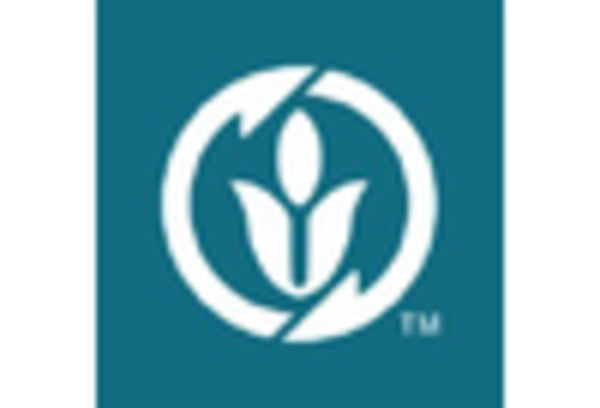Growing Applications in Healthcare
The healthcare sector is increasingly adopting biomaterials for various applications, which is propelling the growth of the biomaterial market. In South Korea, the demand for biocompatible materials for medical devices, implants, and drug delivery systems is on the rise. This trend is driven by the need for safer and more effective medical solutions. The biomaterial market in healthcare is projected to grow significantly, with estimates suggesting a value of over $800 million by 2027. The integration of biomaterials in regenerative medicine and tissue engineering is particularly noteworthy, as it opens new avenues for treatment and recovery. Consequently, the healthcare industry's reliance on biomaterials is likely to enhance the overall market dynamics.
Rising Demand for Eco-Friendly Products
The increasing consumer awareness regarding environmental sustainability is driving the demand for eco-friendly products in the biomaterial market. In South Korea, consumers are becoming more conscious of the ecological impact of their purchases, leading to a shift towards biodegradable and renewable materials. This trend is reflected in the growth of the biomaterial market, which is projected to reach approximately $1.5 billion by 2026. Companies are responding by innovating and developing new biomaterials that align with consumer preferences for sustainability. This shift not only enhances brand loyalty but also positions companies favorably in a competitive market. As a result, the biomaterial market is likely to experience robust growth fueled by this rising demand for environmentally friendly alternatives.
Technological Innovations in Biomaterials
Technological advancements play a crucial role in shaping the biomaterial market in South Korea. Innovations in material science, such as the development of new biopolymers and composites, are enhancing the performance and applicability of biomaterials across various industries. For instance, the integration of nanotechnology in biomaterials is leading to improved mechanical properties and functionality. The South Korean biomaterial market is expected to witness a compound annual growth rate (CAGR) of around 12% over the next five years, driven by these technological innovations. Companies investing in research and development are likely to gain a competitive edge, as they can offer superior products that meet the evolving needs of consumers and industries alike.
Regulatory Support for Sustainable Practices
Regulatory frameworks in South Korea are increasingly favoring sustainable practices, which is positively impacting the biomaterial market. The government is implementing policies that encourage the use of biodegradable materials and reduce reliance on conventional plastics. These regulations are designed to promote environmental sustainability and align with global trends towards greener alternatives. As a result, companies in the biomaterial market are adapting their strategies to comply with these regulations while also capitalizing on the opportunities they present. The anticipated growth in the biomaterial market is likely to be bolstered by these supportive regulatory measures, which aim to foster innovation and sustainability in material usage.
Increased Investment in Research and Development
Investment in research and development (R&D) is a significant driver of growth in the biomaterial market. In South Korea, both public and private sectors are allocating substantial funds to explore new biomaterials and their applications. This focus on R&D is essential for fostering innovation and enhancing the competitiveness of the biomaterial market. For instance, government initiatives have been established to support startups and established companies in developing advanced biomaterials. The South Korean government has earmarked approximately $200 million for R&D in sustainable materials over the next few years. Such investments are likely to accelerate the pace of innovation and contribute to the overall expansion of the biomaterial market.

















